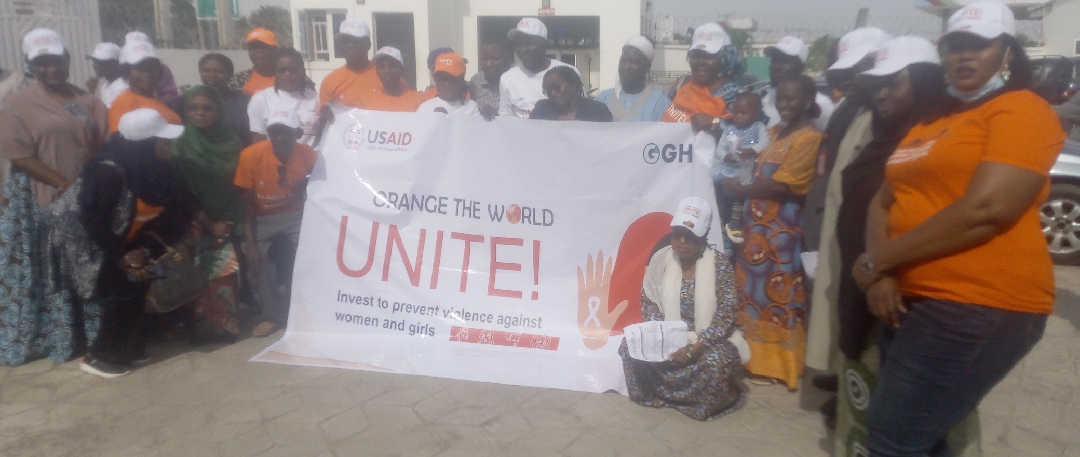By Ahmed Ahmed
Stakeholders on GendeGender-Basedence (GBV) in Bauchi State have cautioned that Sexual Gender Based Violence (SGBV) increases exposure to HIV.
They asserted that the end of a two two-symposium with Stakeholders on ending engender-benevolence on women and girls to come to commemorate days activism on Wednesday in Bauchi.

The symposium was organized by Georgetown Global Health Nigeria (GGHN) with the theme Orange the World Unite Invest to prevent evidence against women and girls.
The stakeholders identified that Gender-based violence, and gender inequality more broadly, are associated with increased risk of HIV among women and girls as well as among key vulnerable groups
Interventions need to be based on an understanding of the potential pathways that link violence against women to HIV infection. HIV prevention, treatment, and care programmes for women.
“That can integrate violence prevention into their risk-reduction counselling, work with men and boys to promote gender equality and reduce violence perpetration,
“Empower women, girls and sex workers, address harmful gender norms that perpetuate the acceptability of violence, and address the harmful use Laws and policies that perpetuate gender-based discrimination against women and girls also need to be addressed,” the Stakeholders stressed
Drhu Saleh, State Team Lead, Bauchi GGHN/ACE2 Project said the symposium aimed to meet with Stakeholders and identify gaps in GBV
“As well strengthening gender response, human right, and social inclusion through prevention of HIV transmission,” he said
Also Speaking, Evelyn Paul GGHN GBV Advisor explained that the gender and social inclusion units of GGHN aim to understand and bridge the existing gender-based gaps in accessing healthcare services and prevention of gender-based violence in our communities.
“The unit also aims at strengthening gender response, human rights social inclusion through prevention of HIV transmission,
“Support clinical care and treatment services, as well as addressing the needs of women, girls, men, and boys in the communities,” she said
Paul however urged the Stakeholders to be proactive in advocacy, sensitisation and creating awareness on social inclusion and bridging the GBV gaps in the communities.
Barrister Saratu AbdreAndrewna of the State for Ministry Justice pointed out that the Violence Against Persons Prohibition (VAPP) law is domesticated and implemented in the state.
“VAPP law is self-described to “eliminate all forms of violence against persons in private and public life and provides maximum protection and effective remedies for victims and punishment of offenders: and all related matters.” she, said
Haruna stressed that the VAPthe P law is an incredibly important piece of regulation for Nigerians. Not only does it prohibit multiple forms of SGBV, but it also appends punishment for offenders, accomplices and anyone caught in an attempt.
The first part of the law includincludesces such as rape, coercion, threatening a person with physical injury, offensive conduct, female genital mutilation, depriving a person of his or her liberty,
“Forced financial dependence or economic abuse, forced isolation or separation from family and friends, verbal and psychological abuse, negative widowhood practices,
“Abandonment of spouse, children and other dependents, stalking, intimidation, spousal battery, harmful traditional practices, among others,” she said.
The Stakeholders at the meeting include Traditional and Religious leaders, CSOs, Government officials from relevant ministries, PWDs, and Media among others.











Leave a Reply